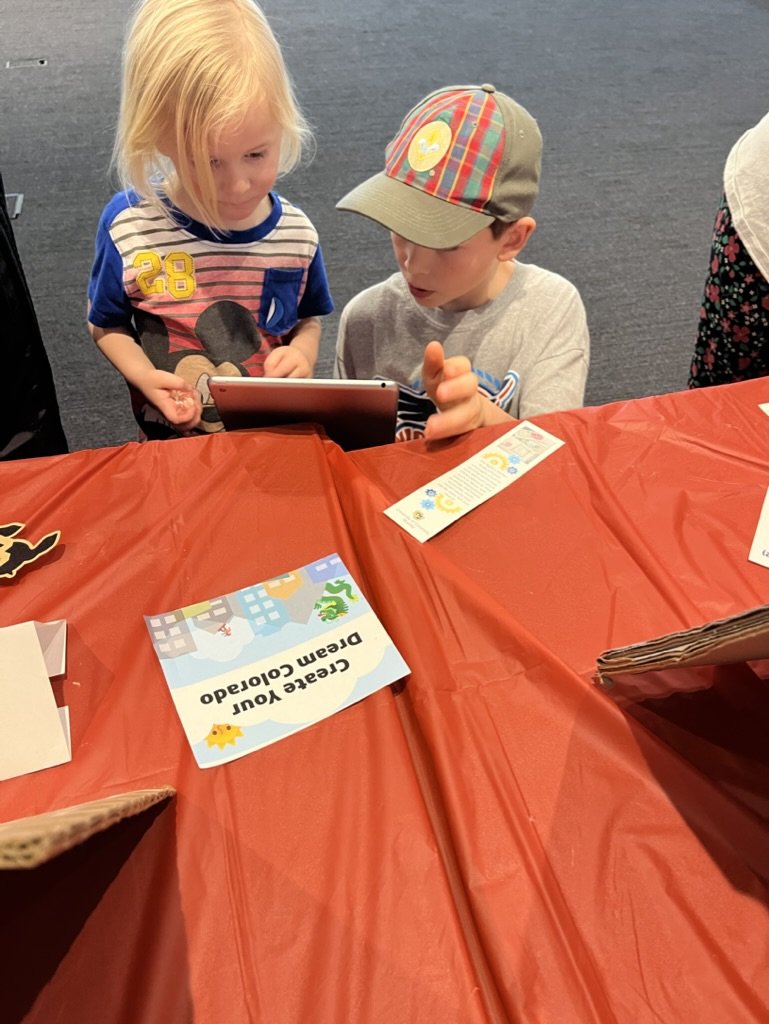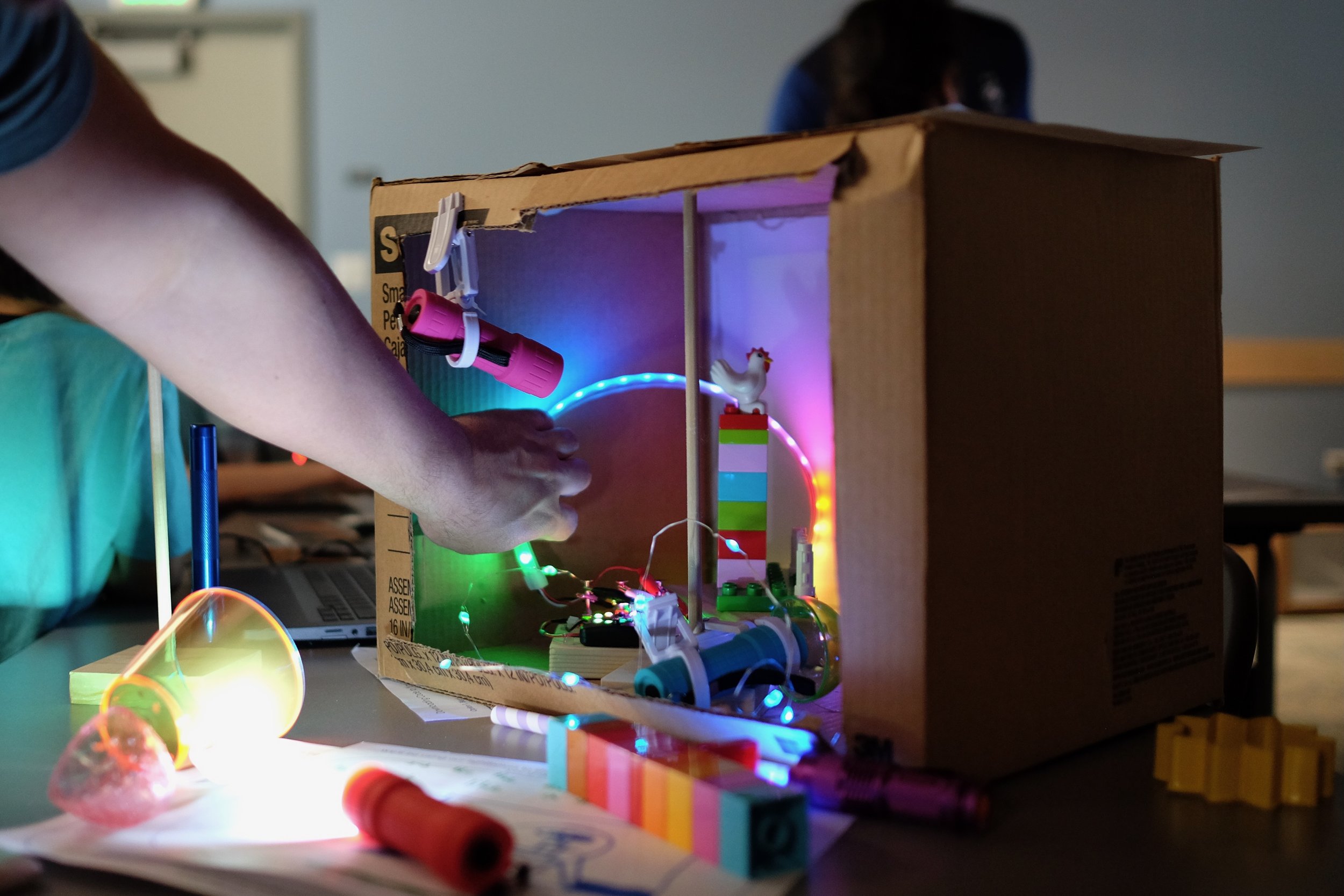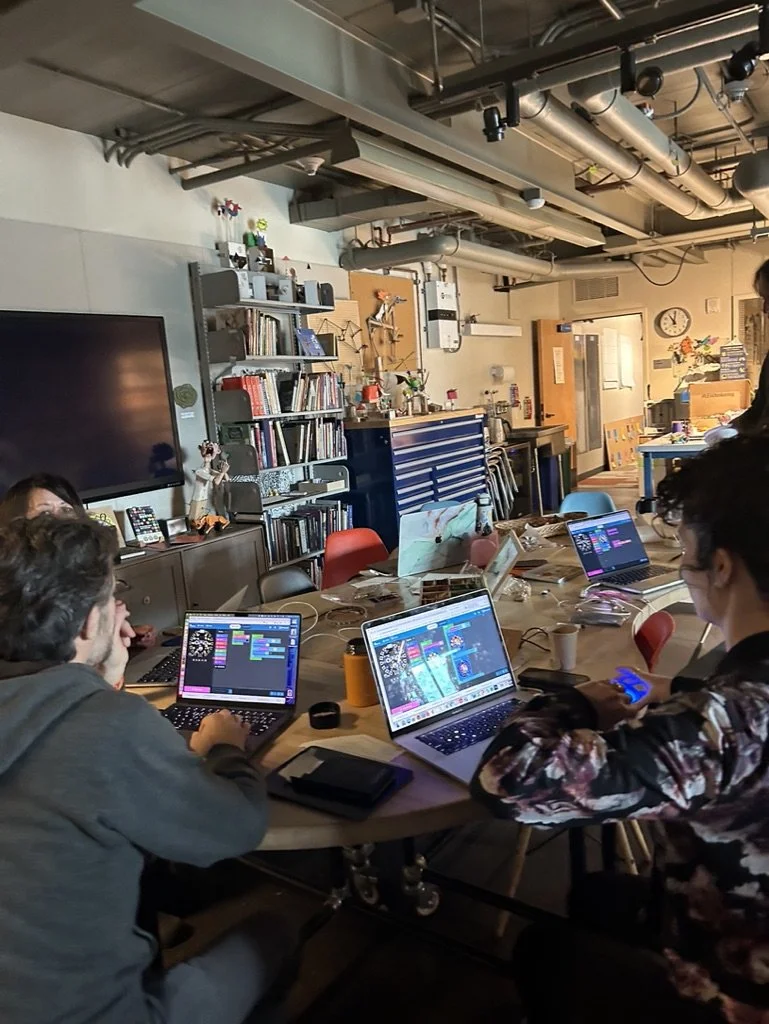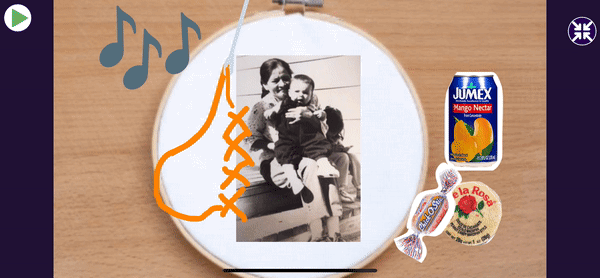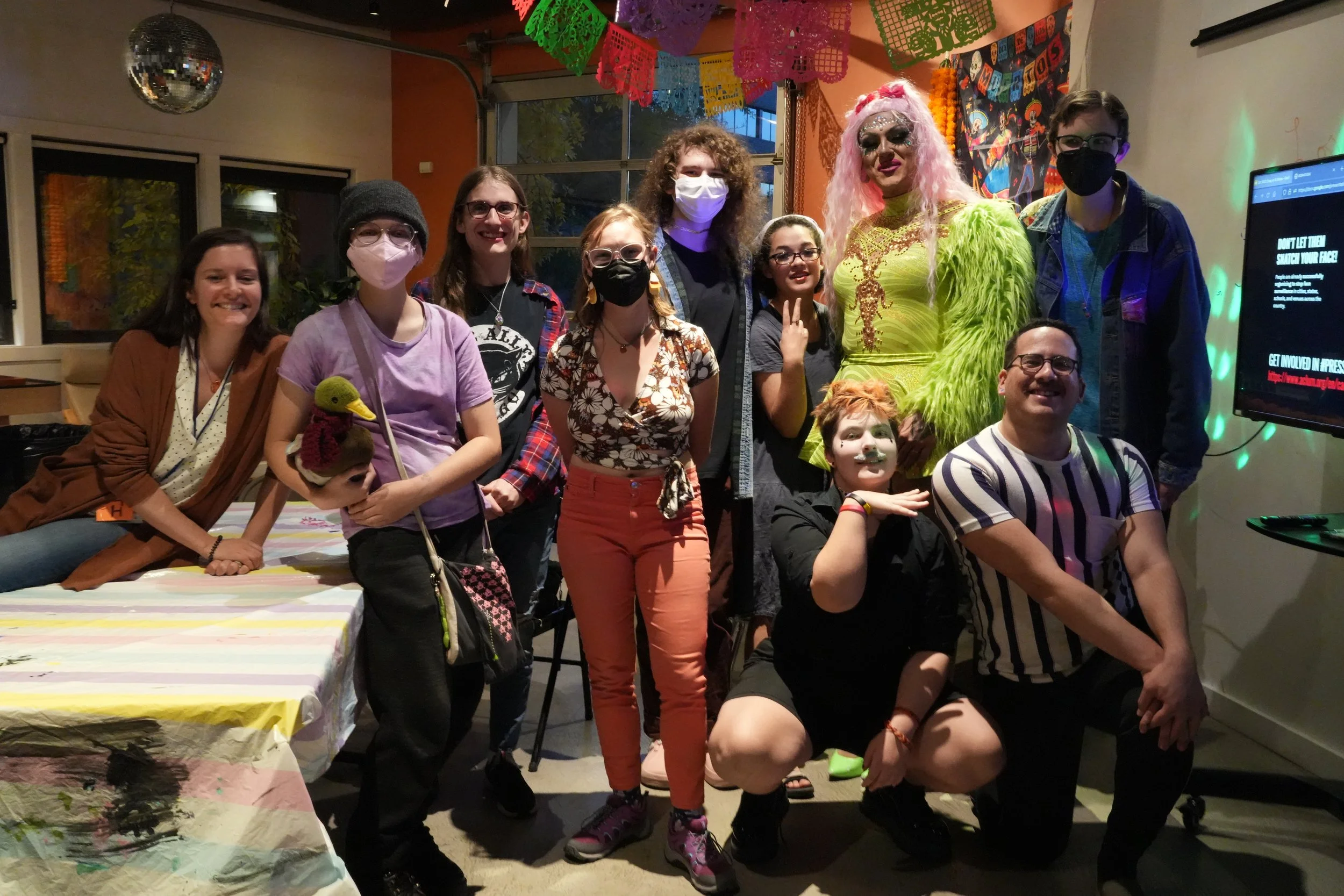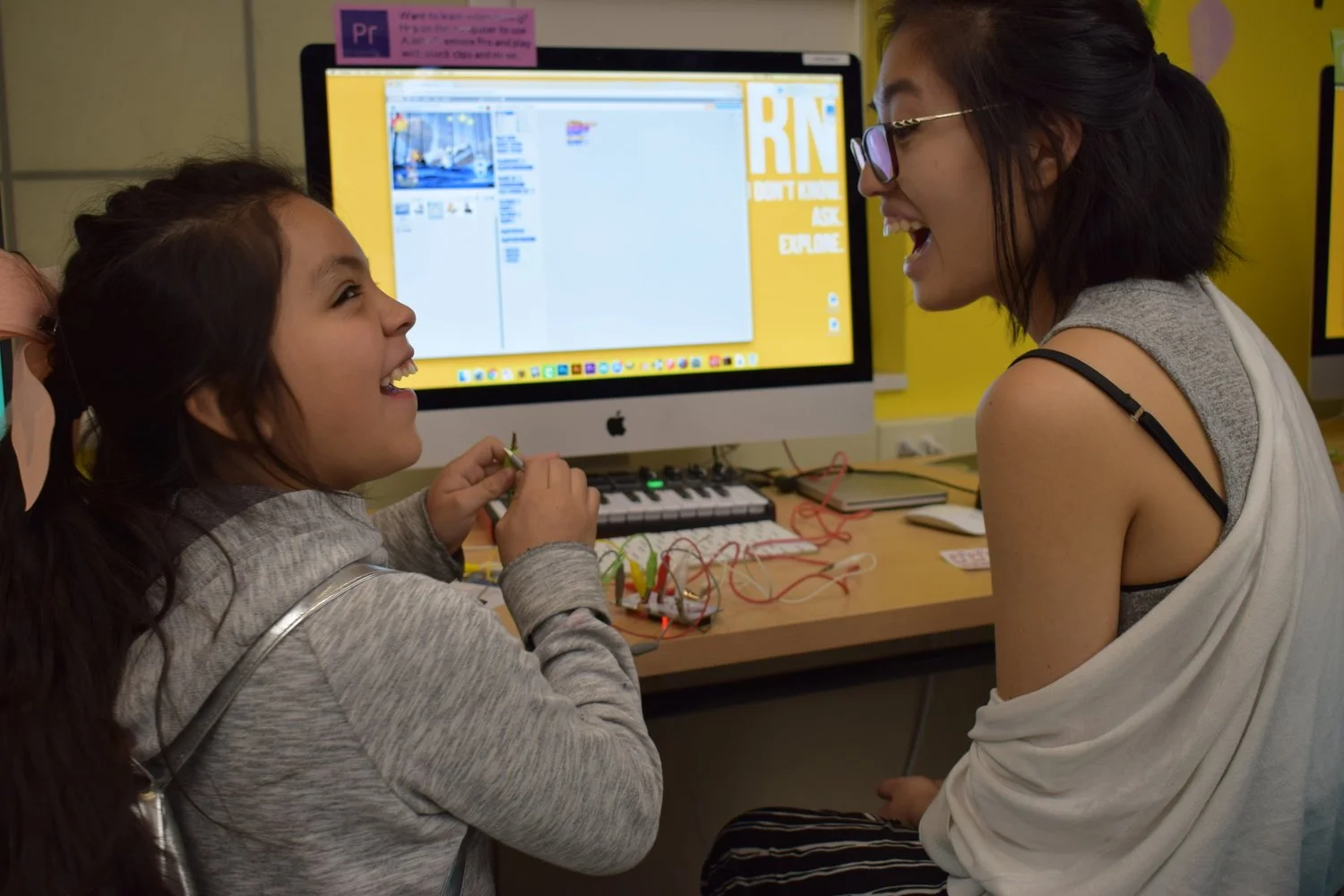In the fall and spring semesters of last year, we took inspiration from the Facilitating Computational Tinkering project’s OctoStudio activity “Tinker with a View” and designed an activity we called “My Dream Colorado”. We wanted to further localize the activity by making it more specific to the communities and neighborhoods of the people participating in the workshop.
Our first iteration of Dream Colorado took place in the Hadley Library ideaLAB. Our initial idea was to create a Candyland-esque map on the floor that kids could add OctoStudio projects to as scenery. However when we pitched the idea to the Hadley facilitators, they responded with uncertainty – many of the kids and families who visit the Hadley space are first and second-generation immigrants who may not be familiar with the American board game, not to mention its decline in popularity since our own childhoods in the early 2000’s. Instead, a new idea developed between us. Focusing on what is familiar to ideaLAB visitors and the capabilities of the OctoStudio app, we switched our topic to being more place-based and community-specific. Together we came up with “My Dream Colorado”, a workshop where kids and families could revamp nearby neighborhood landmarks and imagine what they would like to add to their communities using OctoStudio. It was also important to the Hadley facilitators that it be a drop-in workshop, which could accommodate busy family schedules and encourage more participation in the activity.
To set up for the workshop, we spent a couple of days in Hadley with iPads with OctoStudio for people to try. While we were there, we chatted with community members, the library facilitators, and the teen tech to see what local landmarks we should include in our workshop. We got many great suggestions in addition to recommendations for where to eat lunch later. Back at the lab, we built cardboard displays representing some of those landmarks, such as a local park amphitheater and nearby Vietnamese plaza, and more general imagery that could be associated with Denver, such as mountains and a brick mural wall. Because we were using library iPads whose dimensions were unknown and allowing personal devices to be put on the displays, we could not have the cardboard frames that were used in the original Tinker with a View workshops that only fit one size of tablet. Instead, we laser cut small wooden hooks that could be wedged into the cardboard at any distance and hold various sizes of tablets and phones.
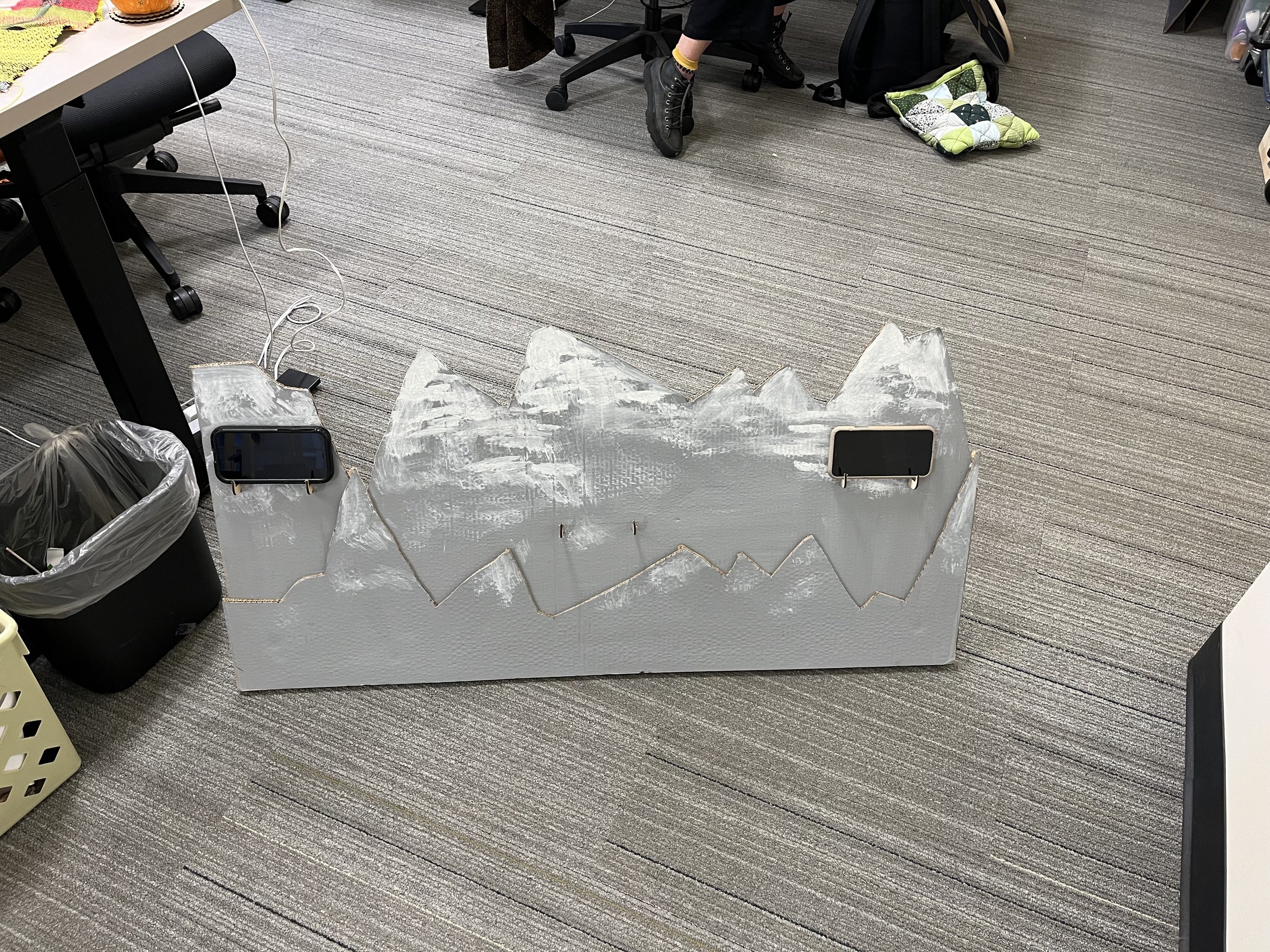

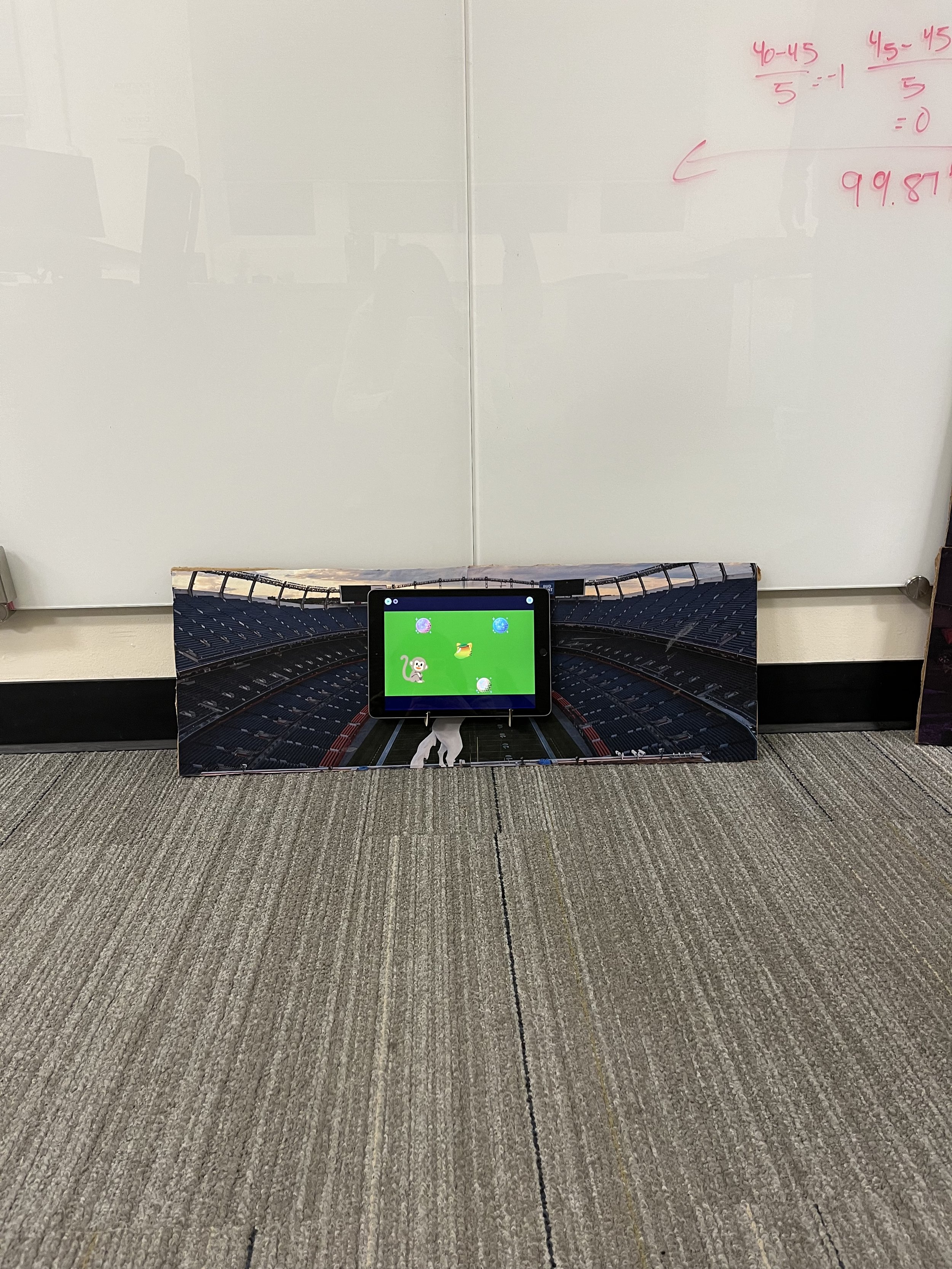

Overall, the workshop was a huge success! We had around 20 families come by and participate. Facilitators, teens, kids, parents, and research team members all made projects together and shared them by placing them on the displays. While many of the projects’ content didn’t necessarily match with the prompt of “Design Your Dream Colorado”, participants found joy in incorporating elements from crafts and displays within the library space, taking photos of facilitators for their projects, or making a project around their current makerspace interests. One of the most impactful decisions we made for the workshop was having a Spanish language speaker present as a facilitator. Families who came to check out the workshop stayed longer because they could discuss the activity in Spanish with the facilitator and she spent a long time helping kids with their projects in Spanish. The Hadley facilitators also enjoyed the tinkerability of the app and approachability of the activity for their community. They later had fun discovering that participants had added little surprises around their space, such as hiding a 3d printed frog underneath the teen tech’s perler bead house.




Later in the semester we decided to do a second iteration of Dream Colorado and brought the activity to the CU Science Discovery STEAM Fest. STEAM fest is an annual all-day long event that features dozens of STEAM activities put on by various CU students, researchers, and community members. Over 8,000 people attend every year, most under the age of 8. We brought a pared-down version of the Dream Colorado activity to the event knowing that there would be more people and less space. We only brought the mountain and brick wall scene and very limited craft materials so as to maintain the focus on coding. We also printed out more CU Boulder-relevant images for visitors to use in their projects, such as buffalo, the flatirons, and the CU mascot.
It was interesting to see parent and child dynamics in the STEAM fest setting. We noticed many guardians wanted to work with their kids on the project while many of the kids wanted to work independently, pushing adults away from their ipads. In addition, similarly to the Hadley iteration of the workshop, most projects were not especially relevant to the topic of designing a dream Colorado. Many were variations of the projects we had up on the display as examples, iterations from projects earlier visitors made, or stories that the creator had found funny or entertaining. Kids were incredibly excited to see us put their projects onto the display and share it with their friends and family.
Having now done this workshop twice in different settings, we have been able to reflect on how we might readjust it for future iterations. The following are some quick tips and emerging lessons for others who might be interested in trying it out for themselves:
Curate a set of local and familiar materials such as printing out pictures of local community spaces, popular restaurants, or familiar landmarks. Not familiar with the area? If possible, spend some time in the area and ask people what they would suggest.
When demoing your tool (in our case, OctoStudio) highlight features that especially allow participants to customize their projects like taking a picture.
Stand examples up on the table rather than laying them flat. This makes them more visible to people coming up to the table and more inviting to interact with.
When making example projects, make a range of projects that go from fantastical to augmenting existing spaces.
Put projects in “forever” loops so that they play continuously as people walk up.
We are always interested in what other people are trying in their own spaces. If you ever make your own iteration of Dream Colorado, please reach out! We would love to chat.

